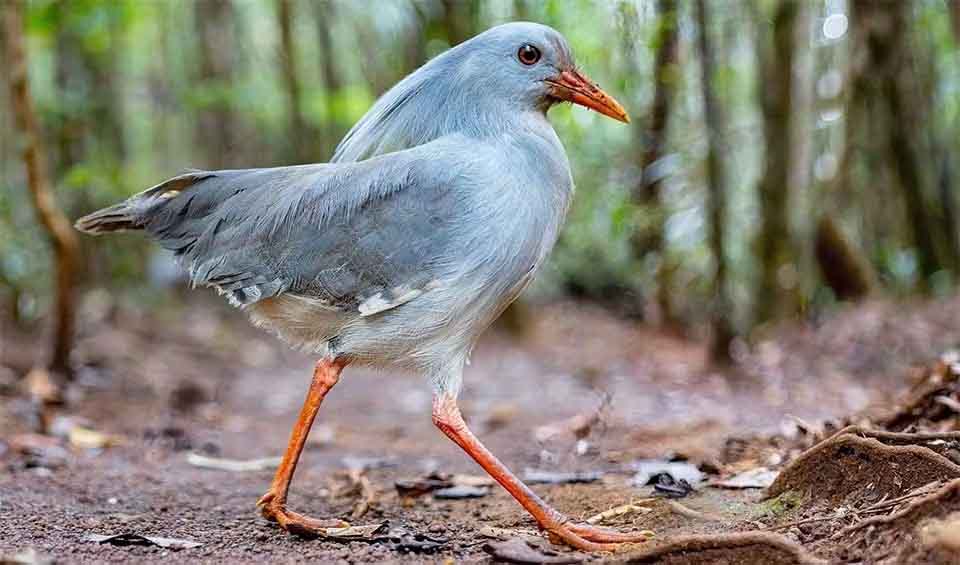The Kagu or Cagou is an enigmatic and nearly mythic bird that inhabits the dense, mountainous forests of New Caledonia, a unique biodiversity hotspot. With its ghostly pale grey feathers, piercing red legs, and a demeanor that hints at ancient origins, the Kagu is a bird that seems to belong to another age. It stands as the only extant member of the genus Rhynochetos and the family Rhynochetidae, a lineage of birds with only one other species, now extinct, known from the fossil record.
At a length of 55 cm (22 inches), the Kagu presents a striking figure amidst the verdant undergrowth of its forest home. Its plumage, a subtle tapestry of grey, allows it to blend seamlessly into the dappled light of the forest floor. The bird’s ‘nasal corns,’ a feature unique to its species, are flaps of skin that cover its nostrils, presumably an adaptation to its ground-dwelling lifestyle that helps to keep out debris while the bird forages through leaf litter.
Indeed, the Kagu is almost exclusively terrestrial, rarely taking to the air. Its wings are short, and its flight capabilities are limited, a trait that has arisen due to the absence of predatory mammals on New Caledonia. This ground-bound existence means that the Kagu is a master of its domain, hunting invertebrates with a precision honed by generations of evolution. It stalks its prey stealthily, using its sharp beak to snatch up worms, snails, and insects.
Unfortunately, the Kagu’s existence is threatened. It is listed as Endangered, with an estimated population of only 250 to 1,000 mature individuals remaining in the wild. The primary threats to its survival are introduced species such as cats and dogs, which prey on the birds, and deer, which degrade their habitat.
Distribution
 New Caledonia
New Caledonia Official estimate
Official estimate
Anything we've missed?
Help us improve this page by suggesting edits. Glory never dies!
Suggest an editGet to know me
Terrestrial / Aquatic
Altricial / Precocial
Polygamous / Monogamous
Dimorphic (size) / Monomorphic
Active: Diurnal / Nocturnal
Social behavior: Solitary / Pack / Herd / Clan
Diet: Carnivore / Herbivore / Omnivore / Piscivorous / Insectivore
Migratory: Yes / No
Domesticated: Yes / No
Dangerous: Yes / No




